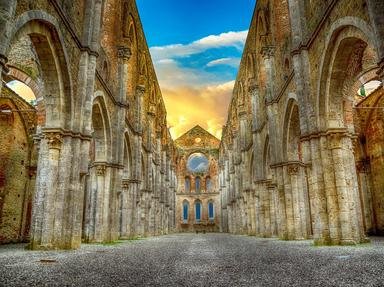Quiz Answer Key and Fun Facts
1. Inventor of the Anno Domini dating system
2. One of the two architects of Hagia Sophia and a great mathematician
3. Chemist who invented the Greek Fire
4. Pope who crowned Charlemagne as Emperor
5. Warlord who founded the Duchy of Normandy
6. King who broke up the power of the Khazar Khaganate
7. Philosopher and theologian, most prominent of scholasticists
8. Abbot and theologian, co-founded the Knights Templar
9. German noble, led the expansion of the Teutonic Knights in Old Prussia
10. Inventor of the movable-type printing press, an invention often credited with ending the Middle Ages
Source: Author
DeepHistory
This quiz was reviewed by FunTrivia editor
gtho4 before going online.
Any errors found in FunTrivia content are routinely corrected through our feedback system.
